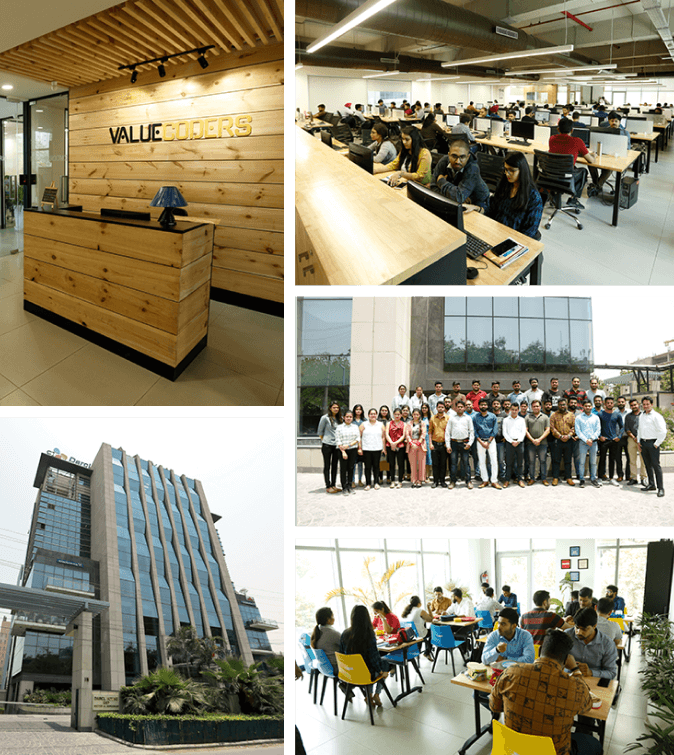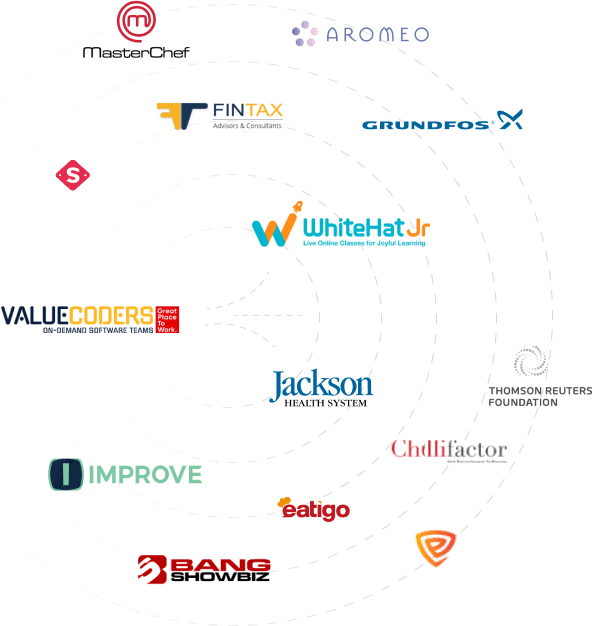Why The Involvement Of DevOps In The Business Process Is Important?
The State of DevOps Report reveals that the usage of DevOps in various businesses such as profit, not profit, educational,…
Guaranteed response within 8 business hours.
Tell us your project idea, and our experts will turn it into an amazing digital product that perfectly meets your expectations.
Businesses hire DevOps managers from ValueCoders because our AWS DevOps engineers/managers adopt the latest tools and technologies to serve robust yet scalable solutions. Here are our core USPs:



Our Consultants are here to help you find the right web-based solution that best meets your requirements.
Hire our offshore DevOps developers to get the best quality DevOps services
DevOps is the approach of operations and development engineers working together in a collaborative way to deliver software. It’s a term that covers a lot of different ground, but at its heart, it’s about breaking down the barriers between traditional silos and bringing people together to share ideas, tools, and techniques.
DevOps is about ensuring that software is delivered as quickly and efficiently as possible. It helps ensure everyone is working towards the same objective by breaking down the fences between development and operations teams. Ultimately, this leads to faster deployments, fewer glitches, and happier customers.
A DevOps engineer is a person who specializes in the process of software development and the operations that go along with it. They are responsible for ensuring that applications meet business requirements and industry standards and keep them updated and running efficiently.
DevOps engineers deploy, manage, and monitor systems to ensure smooth operations. They focus on automation to streamline processes and create an efficient workflow. They must know about development and operations and have experience with cloud platforms and containerization. They must identify problems quickly and work collaboratively with other teams.
Moreover, they must also be able to troubleshoot issues effectively and provide solutions that can scale up for the future. A DevOps engineer needs to have excellent communication skills and effectively communicate ideas and solutions across teams. They must also be organized and can juggle multiple projects at once.
Furthermore, they must stay up-to-date on industry trends and new technologies to take advantage of them when needed. Overall, being a DevOps engineer requires strong technical and communication skills to successfully deliver applications that meet customer needs.
The role of a DevOps engineer is essential for businesses that want to stay competitive in today’s ever-changing market. It offers the ability to quickly deploy and manage applications while ensuring their performance and scalability.
DevOps engineers can reduce software development time and effort by utilizing automation while keeping systems updated and secure. This allows businesses to stay agile and deliver top-notch solutions to their customers.
DevOps is an approach to software development that emphasizes collaboration between the development and operations teams. By fostering collaboration it enables both teams to work together to ensure that applications are delivered quickly and reliably. This can lead to faster and more frequent releases with fewer errors.
The DevOps approach utilizes several tools and techniques that help promote collaboration between the teams. These include continuous integration and delivery, which allow for code to be integrated quickly into development environments; test automation, which helps ensure that changes made during development don’t introduce errors; and monitoring tools, which provide feedback on how applications perform in production.
DevOps also advocates for frequent communication between the teams so that any problems can be identified and addressed quickly. This helps ensure that the software is delivered to customers on time and with minimal errors.
Ultimately, DevOps offers organizations a way to develop and deploy applications faster, more reliably, and more securely than ever before. By encouraging communication between the development and operations teams, organizations can reap the benefits of faster delivery times, fewer errors, and higher customer satisfaction. All of which can lead to increased revenue and a better bottom line.
Like anything, there will always be challenges when adopting a new way of working. Some of the challenges that you may encounter when implementing DevOps include the following:
Change management – DevOps requires a change in mindset for both development and operations teams. It can be challenging to get everyone on board with the new way of working, and there may be resistance from some team members.
Organizational culture – DevOps can require a change in organizational culture, which can be challenging.
Tooling and automation – Tools and technologies required in DevOps can be expensive to implement.
Training – Training for both development and operations teams is a must, which can be time-consuming and expensive.
India has a great pool of DevOps engineers with deep knowledge and understanding of the technology. With the country’s rich heritage in software engineering, there is no shortage of highly skilled professionals.
Indian DevOps engineers have experience working with various platforms and technologies, so they know exactly what it takes to develop a reliable and efficient solution. Their strong problem-solving and critical-thinking abilities complements their technical skills.
Moreover, DevOps engineers from India have an excellent understanding of the industry’s best practices and standards.
There are many reasons to hire DevOps engineers from India. Some of these include:
1) Excellent technical skills – Indian DevOps engineers are known for their excellent technical skills and expertise in DevOps tools and technologies.
2) Highly cost-effective – Compared to their counterparts in other countries, DevOps engineers from India are highly cost-effective, which makes it easy for businesses to hire more resources without breaking the bank.
3) Time-zone advantage – The time zone difference between India and most Western countries provides a significant advantage to businesses looking to outsource work to Indian developers. This allows businesses in the West to get work done during business hours while still taking advantage of the low-cost advantages that Indian engineers provide.
4) Highly experienced – Indian DevOps engineers have extensive experience and knowledge in working with various infrastructure and DevOps tools, which is beneficial for businesses looking to deploy their solutions quickly.
5) Flexible working hours – Indian developers are typically available to work on flexible hours, making it easy to handle multiple projects at once and allowing businesses to develop their solutions faster.
Once the application has been developed, it needs to be tested and deployed. This is where DevOps comes in. DevOps practices ensure that any changes are implemented quickly and accurately, ensuring everything works as intended.
The timeline to build an application with DevOps typically comprises six steps.
Step 1: The first step is architecture planning. This involves defining the components required for the application and formulating a plan for how they will interact. During this phase, decisions should be made about which technologies to use, such as programming languages and databases. It is important to consider scalability and security concerns while designing the architecture.
Step 2: The second step is creating a development environment. This involves configuring the necessary software and hardware needed for the development team to start building the application. Depending on the size of the project, this can involve setting up multiple servers or even a cloud platform such as Amazon Web Services. The development environment should be designed by the architecture plan created earlier.
Step 3: The third step is code development, which involves writing the application code using the technologies defined during the architecture planning phase. This process can involve multiple people working together to create and refine different components. During this process, developers should pay close attention to security, scalability, and performance.
Step 4:The fourth step is testing the application. This involves running tests to ensure that the code meets all performance, security, and reliability requirements. Automated tests should be used wherever possible to speed up this process and improve accuracy.
Step 5: The fifth step is deploying the application. This involves setting up the application on the production environment and ensuring it functions correctly. This process can involve configuring servers, databases, and other infrastructure components.
Step 6: The sixth step is to maintain and monitor the application. This involves performing regular updates to the codebase and monitoring for any performance or security issues that might arise in the live usage of the application. Monitoring is critical to ensure that the application remains secure and performant.
Following these steps should result in an application built using DevOps principles and practices, allowing for faster development times and greater reliability. Ultimately, this process should make creating applications with high levels of security, scalability, and performance easier. By following these steps, developers can effectively build an application with DevOps.
We at ValueCoders come up with write-ups that enhance your knowledge and keep you updated about the latest happenings in the IT industry. Our experts constantly research new IT tools and make write-ups for our valuable customers.


The State of DevOps Report reveals that the usage of DevOps in various businesses such as profit, not profit, educational,…


Surely, you would be aware of the potential of DevOps and why it is so popular in the IT sector.…


DevOps has become a buzzword, and many businesses are foreseeing guaranteed potential in this IT aspect. However, almost all of…
Here are answers to some questions about hiring DevOps developers or the DevOps technology that our clients frequently ask
Ans. Our DevOps developers are experienced in different tools and technologies, so they can help you get the most out of your DevOps implementation. We have a team of DevOps experts who can help your business achieve its goals. We also offer various services to help you get the most out of your DevOps investment. So,you can hire our DevOps developers from India without any qualms.
Ans. DevOps development can help your business achieve several benefits, including faster time-to-market, improved quality, smoother workflow, and better scalability. DevOps can also help to secure modern applications. Our DevOps developers are experienced in various tools & technologies, so they can help you get the most out of your DevOps implementation. Offshoring DevOps developers from India can help you get quality work at a reasonable price.
Ans. The main difference between DevOps and traditional development is the focus on collaboration and communication that DevOps brings. This helps to improve the quality and speed of software development. DevOps also brings a suite of tools to help improve the workflow between developers and operations personnel.
Ans. DevOps is considered a practice of bringing development and operations teams together. Also, when you hire offshore DevOps developers, you do not have to set up an environment from the beginning. Hence, the cost is also less. Agile refers to an iterative approach that focuses on collaboration, customer feedback, and small, rapid releases.
Ans. Here are the reasons why you should opt for DevOps architects:
Ans. The cost of building an application with DevOps can vary depending on the size and complexity of the application. However, the main benefits of using DevOps usually result in a faster time-to-market and improved quality. As a result, the overall cost of using DevOps is usually lower than traditional development methods. Hiring DevOps programmers from India can help you save money and get the desired results.
We are grateful for our clients’ trust in us, and we take great pride in delivering quality solutions that exceed their expectations. Here is what some of them have to say about us:
We offer a 2 weeks risk-free trial for you to try out the resource(s) before onboarding. After 2 weeks, if you like the resource(s), you pay for the time and continue on. Else, we replace the aligned resource(s) or cancel the trial as per your wish.
Simple, transparent and easy - isn't it?
Start my 2 week risk-free trial now!Our consultants will respond back within 8 business hours or less.